Someone has died. Of this, I am certain. I know it because I always know it. As I lie here alone in this big, empty bed and listen to the rain, I remember it as it returns to me, this feeling, this dread, skittering up and down my throat with a thousand little legs. It settles in my stomach like a great stone, a solid, sickening weight. It is rancid in its heaviness and unmistakable in its familiarity. Someone has died. I do not know who.
I sit up, and I take a long breath, pulling my legs out from beneath the covers so that they can dangle above the hardwood—cold where I press my feet. The remains of chipped red polish color my toes. I had intended to paint them this week, but I could not choose a color. I have been told that I am bad at making decisions, too nervous to choose the wrong one. But I do not think that is true. Someone else has simply always been there to make them on my behalf. But I will make one now.
I will call my daughter, I think. I move for the end table to retrieve my glasses. They sit crooked on my nose, and I push them back into place as I look at my cellphone, plugged into the wall there. I wait for it to ring. I stare. I expect it. But it does not.
I had told my husband, at one time, that we should keep the landlines, one in the kitchen and one in the bedroom, for hurricanes or when the power goes out. But there was no point, he had decided, no point when we had a family plan, which was expensive. But sitting here now, maybe there was a point, I think, and maybe I had not insisted hard enough.
A person cannot silence landline phones, after all, not really, not the way they do mobile phones at night. Maybe someone has called me already, someone with the most awful news, and I did not hear.
Connie does not have a landline either; she may not even answer now. Or worse, she may no longer be able to. I shudder, picking up the device. No missed calls. I turn on the sound and begin to flip through my contacts, squinting in the dark.
Connie will answer, I think. And she will be upset that I woke her for nothing. She will say that the children are asleep, and that she just checked on them. Howard is out cold beside her, and yes, she is positive, sure, one-hundred-percent certain that she can see the rhythm of his chest, up and down, up and down.
He is breathing. He is breathing, and he has work in the morning. And so, I really should not bother them so early. There is nothing to worry about, and she will visit me soon. And we will get our toes done together, the pair of us. It must be the storm, she will say, the storm riling me up.
Connie has always thought I worry too much, though. And maybe I do. I place the phone back down.
I will not call her, I think. I have nothing to fret over. The phone has not rung. No one has called. And they always do it so tactfully, in hushed voices, as if the most terrible part of the announcement is the waking, the oh, so sorry for disturbing you, ma’am.
I stare at the phone again. I wait. It does not ring. I hover a hand over it. But I do not pick it up to make the call. I should not disturb her. But someone has died. Of this, I am certain.
My father died when I was six-years-old. I first felt this peculiar nauseous feeling, the sensation of knowing, as I lay in a bed much smaller than this one—with a delicate white metal headboard, wrought into the shape of flowers. I awoke and stared at the ceiling, taking a long, labored breath and pulling the heavy comforter up to my chin, just as I always did to fight off the wind that could fill that room in the winter months. It rattled the windows, and it rattled me, shaking my very bones as I rolled over to look at the little toy chest across the room.
It had been gifted to me by some distant cousin when I was very, very young, too young to recall the party, but it had sat there for as long as I could remember, as if it had always existed right there alongside me. It now sat properly shut for the night.
But that was when the sensation came for the first time, this indisputable, terrible stone in my gullet. Softly, as not to disturb my parents, I pulled myself upward to sit atop the mattress, and crawling to the floor, I crept inch by inch, across the room, my hair dangling over my face. I pause above the toybox, and I stared down at it. And for reasons I even now cannot dare say, I opened the lid.
I do not know how my father got inside. But I saw his bulging, bloodshot eye, staring up at me in the dark, the rest of his swollen features obscured and buried by the clutter—a baby doll whose own hinged eyes have broken, forever open; a spinning top; a velveteen teddy bear; an assemblage of blocks. My father’s eye looked up at me from beneath them all. It blinked.
And at last, he said my name, his voice hoarse, a hollow, splintered noise, uttered through unseen lips from the very depths of his ravaged throat: the worst noise I ever heard.
“Cassie.”
I ran. And from the upper railing, my face placed flush between the wooden rods, I found my mother standing in the front hallway, clad in her checkered nightgown. She wore her hair in curlers then, and pressed up against a dark, wallpapered wall, she stared at the telephone in the alcove by the door. She stared, and I stared at her staring. And I know now that she knew like I know.
But most people can tell, I think, even if they do not realize it. They pick it up in the chilliness of the air, in the lateness of the hour, in an unnatural flicker of a piece of fabric, these tiny signs that something is amiss, that the universe has shifted.
They create in a person, a person with enough sense to see, a terrible, sinking, heavy feeling. And finally, the phone rang.
Sometime later, my mother found me huddled by the doorway to my bedroom. I did not dare go back in, but I had retreated there to cower after a few minutes of listening. She smoked a cigarette as she told me, a nervous habit people still did around their kids then.
But I already knew, of course. I knew that my father had died. I learned later, not from my mother, that a towering, industrial shelf in his warehouse had collapsed, and he had been buried by its contents. And I had found him just like that, entombed in my toybox, some grotesque phantom vision caught, like a crude, blurry snapshot of the moment of his death.
But he was not there when my mother closed the chest again that night. And he did not return. The feeling, however, had been there, this terrible sensation of knowing, the awareness of a death. I had felt it, then, and I feel it now.
I really should call Connie, I think. I pick up the phone, and as I look down at it, my finger hovers over the lock. But I do not press down. I should not bother her. Instead, I tuck the device back in place, and I rise from the bed. I rise, and as if compelled, I move for the closet, the mighty wooden armoire perched right beside the window, where the rain still patters. I stare at it, and I reach out a hand. But I hesitate.
I hesitate because I think that if I open it, I might find someone staring back—a rotted specter come to visit, because perhaps it did not know where else to go. I do not deign to know the motives of decaying ghosts.
And I still, even now, do not know why I saw my father that night, only that, at his funeral, I cried because they had once again put him in a box. And maybe that was it, after all, the soul’s search for a box in which to be put, now that its fleshy container had loosed it.
With a bracing breath, I grab the golden knobs. I should go back to bed. I should not open it. I should not open it because if I do, I may regret it. But if I do not open it, I will have to sit here and wait and stare at the phone until it begins to ring, which I, of course, know it will.
And so, closing my eyes and rearing back my head, so that I might not have to look, I grasp the handles, and I tug. I tug, and the armoire opens, and I dare not peek. I count to three in my head. And in the very back of my mind, I can see Connie now, think of her as a child, in a red dress we had bought her for Christmas. I should like to remember her that way, I think, not how I remember my father—not as a faceless, blackened eye in a box.
I turn back my head. I take another breath. And I open my eyes. I see clothing, and only clothing, a closet full of patterned blouses and dresses I have so few opportunities to wear. But I will have to pick something now, in black, for the services, I think, for whichever one I will have to attend.
Not that one, though. But maybe this one, I decide, reaching out to run my fingers along the edges of a dark, collared dress, with silver buttons down its back. No, maybe not. Reaching into the armoire again, I pull out a dress with a low waist, a black rose stitched on the hip. I could wear it with the long silver chain my husband bought me, I think, the one with the silver charms. But maybe that would be too garish, too bold for a such a grim occasion.
No, I think I could wear it with my mother’s pearls; they are more understated.
I had known it when she died too. But she had not gone suddenly, no, not like a lamp abruptly turned out before the dark. Her own end had come gradually, like the waning glow of sunset, bit by bit, until night could be the only natural, expected conclusion. The phone rang in the middle of the afternoon that day, when I had been folding laundry, the weight of knowing in my stomach.
The hospital had told us to go home and to rest that morning and that they would call if anything changed. But something had indeed changed before they decided to tell us. I wandered into the kitchen that day to find Connie already with the telephone’s cord jumbled around her elbow. And I knew for certain.
I should call Connie now, I think. I should have her check on Howard and the children. No, no, it would wake them. They would be upset. And really, it is just as likely to be a co-worker or someone from the church. These thoughts bring no comfort.
But still, wrapped in them, like a terrible, frayed quilt, I reach into to the closet once more, shifting through the row of heavy clothing, in search of the long-sleeved dress with the belt. I will wear that one to the funeral, I think. It might be the proper choice because I had worn it to my husband’s funeral.
I was alone in bed on the night Richard died. He had been working late, as he so often did. And I had fallen asleep early, with the television on, lulled by the lullaby of commercials and rain. I awoke, as if from a nightmare, to find an infomercial about a countertop grill just starting to loop.
The feeling once again took hold as I rolled over to check the alarm clock, blinking red. And I lay there for a good long while, watching my phone, curled up in a ball beneath the covers, as some sports star extolled the virtues of sleek design, grease traps, and easy cleaning.
The phone rang at 2:27 in the morning, and it was on the third chime that I felt a sudden shift in the bed beside me. A ragged, heavy breath ghosted my ear, hot and garbled, the way a person chokes, and the familiar weight of an arm stretched over to wrap 'round my shoulder.
The exhaling came, then, again and again, a steady, labored noise, rattling in some phantom throat. But I did not dare turn around. I wish, now, that I had, but I did not. I stared forward. I did not blink. And I picked up my cellphone, plugged into the wall there.
“Hello?”
“There’s water in the car, Cas. Oh God, there’s so much water in the car.”
I let out a long breath at Richard’s voice, distorted by static, and all at once, the bed was empty again, and only silence was ringing in my ear.
A police officer told me a few days later that his little silver Ford had been caught in the sudden storm and that he had swerved too hard around a bend in the road. He had died from the collision when the vehicle hit the water, they had said. And the drop was too high for any other possibility, of course. So, at least, he did not drown, something said to me as if it were a genuine comfort.
And he had not been conscious to see the water filling his car. They did not find his phone.
Oh, God, I should call Connie. I cannot take this anymore. Turning from the armoire, I move once more for the bed, for my telephone still plugged into the wall, perched there on the end table. I stare, and it rings. And I scream.
I can recall, even from where I am now, that it was a full, horrible noise, hurled from the very depths of my stomach, as if I were finally letting that terrible great stone out, the one that had been sitting there within it. It echoes from the very core of me. But I do not answer the phone.
My neighbor, in the apartment next-door, is a nice young man. He has shaggy hair and an earring, and he checks in on me from time to time. I stir him from sleep with my wailing, and he will, a few moments from now, come to knock on my door. I do not answer because I am picking up the telephone to see that I have missed a call from Connie. And shaking there in my dark bedroom as he knocks, I decide to dial her again.
My neighbor will call the police. He will tell them that he heard me scream a little bit after 3 in the morning. And he will tell that same story still, for many, many years to come, whispered around darkened tables and across the occasional campfire.
The police will call Connie, and she will tell them that she had been lying awake all night herself, tossing and turning with a great, heavy weight in her stomach. She will tell them that she had called me when she could no longer bear it, but I did not answer—even though her own phone will ring a few seconds later.
She will answer it to hear only her own name, she will say, uttered desperately through a flurry of static. But there will be no record of that call, and they will not believe her, citing technical glitches or tricks played by fear.
And when they break down my door, they will think I had fallen asleep with my armoire doors open and my glasses on the floor. I had not. But they will find me just as I found myself—blue-faced, breathless, covered still by the mound of blankets in my own empty bed, where I had lay for many motionless hours by then.
Someone has died. Of this, I am certain. Someone has died, and oh God, oh God, it is I.

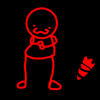


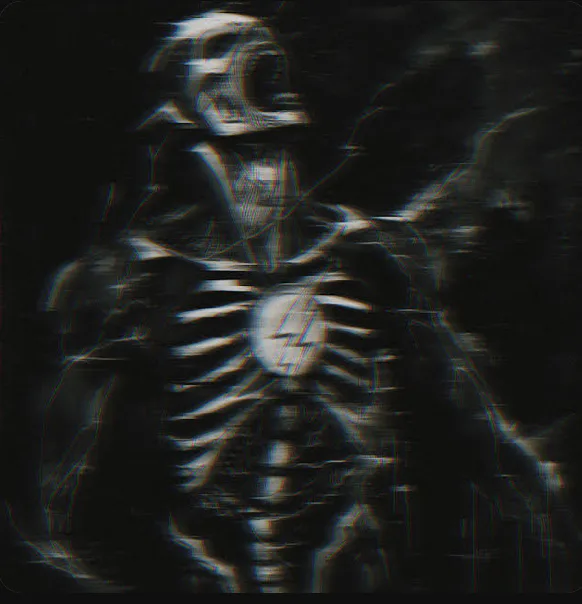

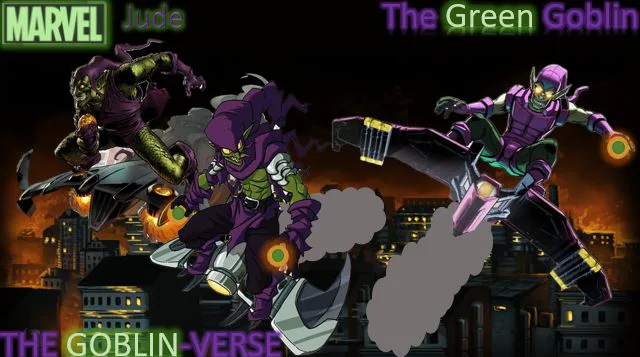
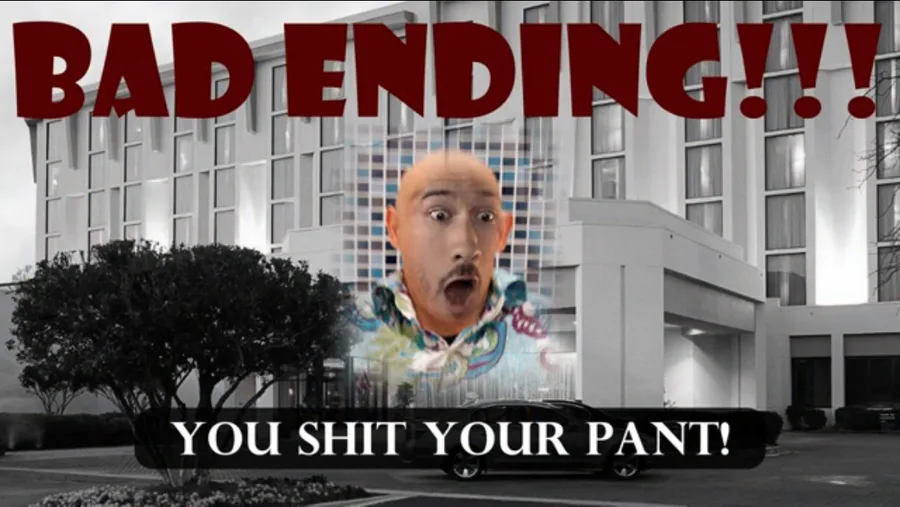
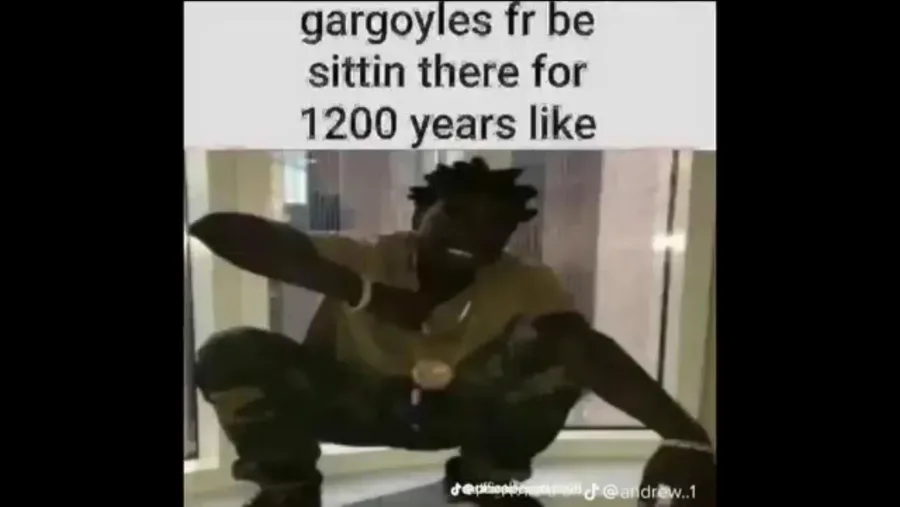
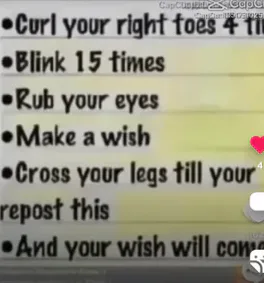




0 comments